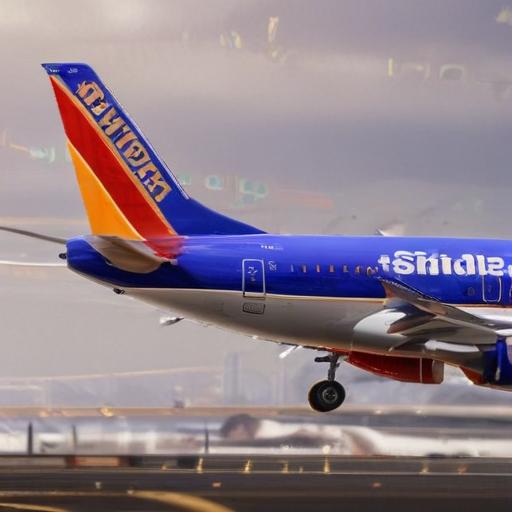Southwest Airlines is currently dealing with significant operational disruptions, having canceled a total of 758 flights across major U.S. cities, including Dallas, Denver, Chicago, Phoenix, Las Vegas, Orlando, and Los Angeles. This setback occurs during peak summer travel, affecting thousands of travelers who are facing delays and cancellations during what is typically a busy season for air travel.
The cancellations represent a considerable portion of Southwest’s daily flight operations, creating challenges for passengers relying on these routes for both business and leisure travel. Airports that are primary hubs for the airline, particularly Dallas Love Field, Denver International, and Chicago Midway, saw substantial service interruptions. This has left many travelers stranded, prompting a search for alternative travel options or accommodations.
While the precise reasons behind this disruption remain unclear, experts suggest multiple factors may be at play, including adverse weather conditions—particularly thunderstorms over Midwest and West Coast airports—and increased air traffic demand putting pressure on air traffic control systems. Additionally, staffing issues that airlines across the globe have faced may have contributed to the operational chaos.
Affected travelers, particularly business attendees, have experienced significant setbacks due to missed opportunities and rebooking challenges. Reports indicate long wait times at customer service desks and difficulties accessing alternative flights, with many facing the prospect of extended delays.
In response, Southwest Airlines is mobilizing additional staff at key locations to assist passengers. Travelers whose flights were canceled are being prioritized for rebooking, although available options are limited. The airline is also working to provide refunds and travel vouchers for those unable to rebook.
For those impacted, it’s advised to frequently check the Southwest Airlines website for updates, reach out to customer service for assistance, explore flights from nearby airports, and prepare for potential delays if their flights are still scheduled.
Looking forward, this disruption highlights the challenges Southwest Airlines faces in managing demand and operational efficiency in a post-pandemic landscape. Despite this setback, the airline is exhibiting a commitment to rectify the situation and restore normal operations. As the industry continues to evolve, customers and airlines alike will need to adapt to the complexities of modern air travel.
Overall, while the current travel chaos presents hurdles, it also serves as a learning opportunity for airlines to enhance their operational strategies and ensure smoother travel experiences in the future.
